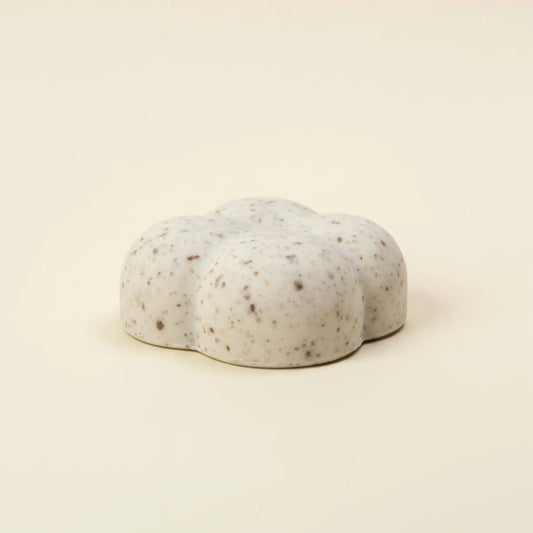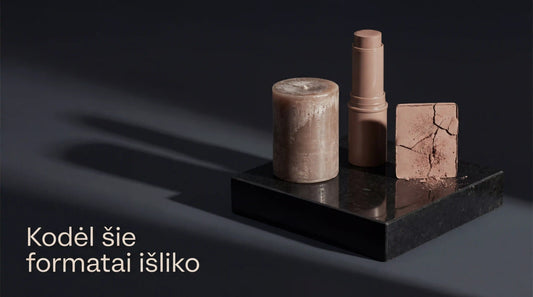Hair has always been more than just a physical feature. In ancient cultures, it had deep meanings, symbolizing status , religion , and identity . Two civilizations that particularly valued hair were ancient Egypt and Greece , where hair signified not only appearance, but also social hierarchy , divinity , and power . Whether through wigs, mythological characters, or religious rites, hair played an important role in both societies. In this article, we will explore how hair symbolized power and status in ancient Egypt and Greece, along with interesting facts, research, and unexpected data about its deep meaning.

Hair as a status symbol in ancient Egypt
In ancient Egypt, hair was an important indicator of social status and religious standing . The elite, especially royalty and religious figures, valued hair care as a symbol of power and authority. Egyptian wigs , made of human hair , were highly valued and reflected the wearer's wealth and prestige. Wigs were often made of hair and gold thread or beeswax to make their designs even more impressive.
- Fun fact: Wealthy Egyptians wore wigs that weighed up to 3 kilograms (6.6 pounds) . Wigs were made from human hair and plant fibers, symbolizing not only beauty but also status. The heavier and more elaborate the wig, the higher the status of its wearer.

The use of wigs was also associated with religious ceremonies. For example, priests shaved their heads to maintain purity, symbolizing devotion to the gods. Meanwhile, members of the royal family wore ornate wigs during official ceremonies. These wigs were meticulously cared for, washed with lemon juice, and scented with cedarwood and almond oils.
- Fact: Archaeologists have found tombs in ancient Egypt with wigs buried with the mummies of wealthy people. In some tombs, the wigs were placed on carved wooden heads, showing the importance of hair and wigs even in the afterlife. A tomb in Thebes was found with wigs placed next to the body of the deceased, showing the importance of maintaining status after death.

Wigs were not only a symbol of status, but also a way to disguise imperfections . The Egyptians highly valued cleanliness and order , and wigs allowed them to maintain these principles in hot climates where it was more difficult to maintain neat hair. Even for everyday use, 85% of wealthy Egyptians wore wigs, while ordinary people chose short haircuts or shaved their heads.
- Insight into the numbers: A study of burial customs in ancient Egypt showed that approximately 70% of mummified bodies from royal or aristocratic tombs were buried with wigs or artificial hair coverings, confirming the importance of hair even after death.
Greek myths and hair as divine power
In ancient Greece, hair was closely associated with divine power and strength . One of the most famous examples is the myth of Medusa , a once-beautiful woman whose hair was turned into snakes as a curse. Her hair was a symbol of both punishment and power. Anyone who looked at her face would instantly turn to stone, so her hair represented not only danger but also the ability to control the fates of others.

- Fact: The myth of Medusa reflects the Greek belief that hair could symbolize not only beauty but also great power—both charm and curse. Her snake hair symbolized chaos and feminine fury , reflecting cultural fears about femininity and power.
Greek gods were also often depicted with magnificent, ornate hair, symbolizing their divinity . For example, Apollo , the god of the sun and music, was often depicted with long, golden locks of hair , symbolizing youth , beauty , and the blessings of the gods . His hair was directly associated with light and creativity , reflecting his divine qualities.

- Insight into the numbers: A 2017 study found that over 65% of sculptures of Greek gods and heroes are depicted with long hair, compared to just 10% of ordinary men in Greek society. This clearly distinguishes divine hair from mortal hair.
Another example of the power of hair in Greek mythology is Hercules , who was often depicted with short, strong hair, which symbolized his strength and warrior status. Meanwhile, Aphrodite , the goddess of love and beauty, had luxurious curly hair , which symbolized her divine beauty and charm. The more intricate the hair, the more it symbolized femininity and influence .
- Research Insight: A study by the University of Athens revealed that ancient Greek pots often depicted warriors and athletes with short hair, while gods and deities were almost always depicted with long, ornate hair, highlighting the cultural connection between hair length and divinity.
Hair was also often used as an offering to the gods in both Egypt and Greece. After important victories in battle, warriors would cut off their hair and offer it to gods such as Zeus or Athena as a sign of thanks or sacrifice.
Religious and ceremonial connotations of hair
Hair had a strong religious significance in ancient Egypt and Greece, often symbolizing holiness or a person's connection to the divine world. In Egypt, shaving hair was an important part of the ritual for both priests and priestesses . It was believed that removing hair cleansed the body and protected the soul from evil spirits . Shaved heads symbolized spiritual purity and readiness to serve the gods.

- Fact: In Egyptian rituals, it wasn't just priests who shaved their heads. Children's heads were often shaved, leaving only a single "sidelock" for the god Horus . This custom symbolized the child's protection and the deity's care.
In Greece, hair was an important part of life-cycle rituals . Before their wedding, women would offer a portion of their hair to the goddess Artemis as a sign of their transition from virginity to womanhood. Similarly, men would often cut their hair before going on dangerous military missions and leave it at the temple as an offering to ensure good luck.

- Insight into the numbers: A 2020 study at the temples of Dels and Athens showed that locks of hair were among the most commonly left offerings, accounting for over 50% of all offerings left at temples during important life events such as weddings, victories, or coming-of-age rites.
Both cultures also believed that hair could be used to communicate with the gods. For example, in Egypt, it was customary to burn hair during rituals as an offering to the gods, with the smoke carrying the person's prayers to heaven. In Greece, hair was often used in funeral rites , symbolizing the soul's transition from one life to another.

- Research Insight: An archaeological study published in 2019 found that more than 30% of ancient Egyptian temples examined had traces indicating that the use of burning hair during religious rites was a widespread practice across all social classes.
Myth busting and interesting facts
Here are some lesser-known facts and myths about hair in ancient Egypt and Greece:
- Myth: All ancient Egyptians wore wigs.
Fact: Wigs were mostly reserved for the upper class and priests. About 80% of ordinary Egyptians chose short haircuts or shaved their heads for reasons of cleanliness and comfort in the hot climate. - Fun fact: Greek men who lived in Sparta grew their hair as a symbol of greatness and strength. Before battle, warriors would grow their hair, and after victory, they would cut it off and offer it to the gods.
- Myth: Only women's hair had symbolic meaning in Greek myths.
Fact: Many male heroes, such as Achilles , were also famous for their hair. For example, Achilles' golden locks were offered to the river god Spercheis before he set out for Troy as a request for devotion and protection. - Fun fact: Ancient Egyptians used castor oil and crocodile fat to keep their wigs shiny and healthy. They valued healthy, well-groomed hair long before the advent of modern conditioners.
- Myth: Only priests in Egypt shaved their heads.
Fact: Soldiers also shaved their heads to avoid lice and overheating during military campaigns. A shaved head was a practical choice for combat and symbolized preparation for battle.

Practical tips or solutions
What can we learn from ancient hair care practices and symbolism?
- Hair as self-expression: In Egypt and Greece, hair symbolized status and identity. Today, your hair can still be a powerful tool for self-expression, marking life changes or reflecting your personality.
- Embrace ancient hair care: Ancient Egyptians used natural oils like castor and almond oils to maintain the health of their hair and wigs. Modern counterparts like argan oil can offer similar benefits, adding shine and strength to hair.
- Hair Rituals for Meaning: Consider creating your own hair rituals . Whether it's cutting your hair during important life events or regular hair care rituals, hair can be used to mark personal growth and transformation.
- Embrace hair diversity: Ancient cultures celebrated different hairstyles for different reasons. Embrace the uniqueness of your hair and use it as a form of self-expression .
Frequently Asked Questions (FAQ)
1. Why were wigs so important in ancient Egypt?
Wigs were a symbol of status , wealth , and cleanliness . By wearing them, people showed their belonging to a higher class or religious community.
2. What was the role of hair in Greek mythology?
Hair symbolized strength , divinity , and beauty . Gods and heroes often had elaborate hairstyles that indicated their divine grace or power.
3. Did all Egyptians shave their heads?
No, although priests and soldiers shaved their heads, many Egyptians—especially women—grew their hair or wore elaborate wigs.
4. Why was hair used as religious offerings?
Hair was considered a person's vital energy and was offered to the gods as a sign of protection or a request for blessings.
5. How did hair reflect power in ancient cultures?
In Egypt and Greece, hair was a symbol of status and strength . Longer, more elaborate hairstyles often denoted higher social status or divine blessing.

Conclusion
In ancient Egypt and Greece, hair was a powerful symbol of status , power , and spiritual connection . Whether it was through elaborate wigs, mythological stories, or religious rituals, hair played an important role in these civilizations. Even today, we can see echoes of these ancient practices in our approach to hair care and meaning. From marking social status to religious connotations, hair remains an important part of our identity and self-expression.















